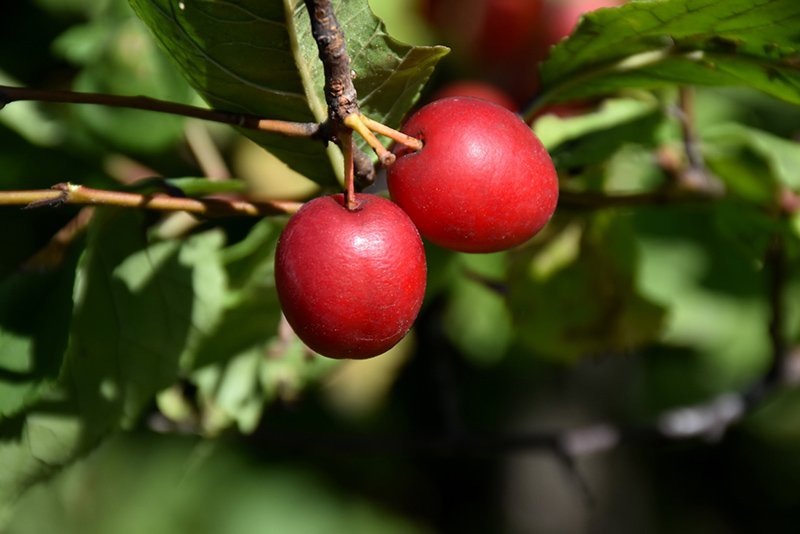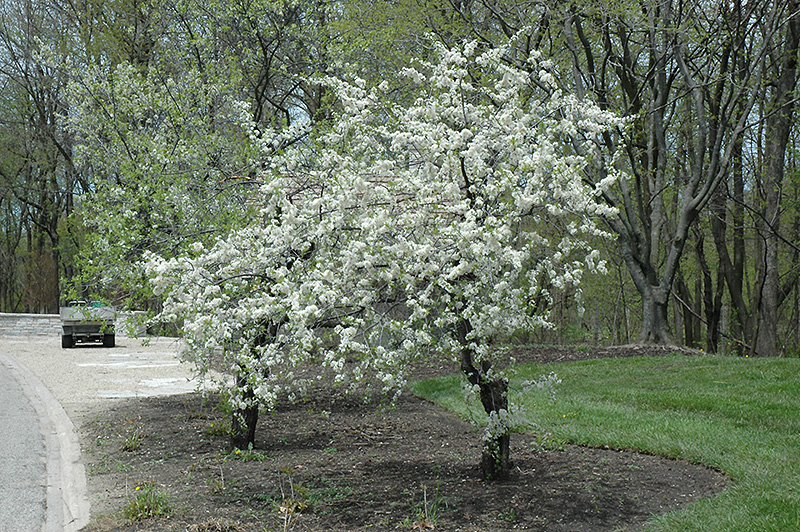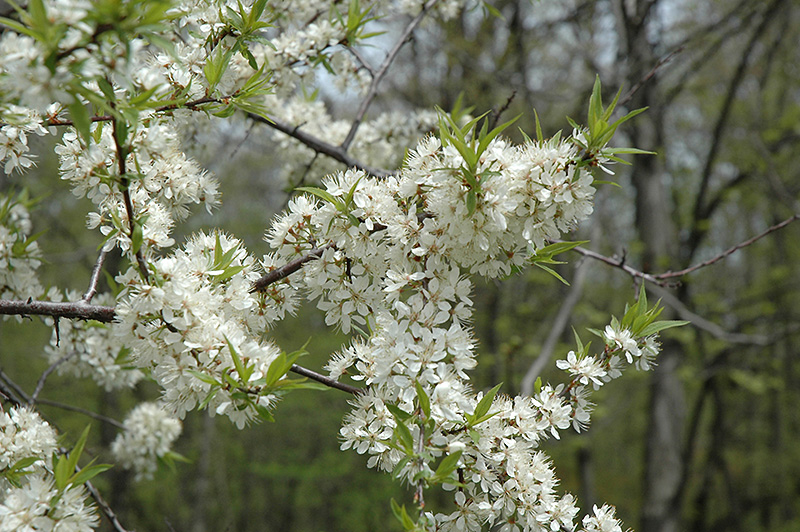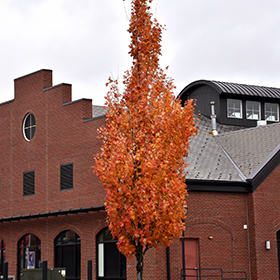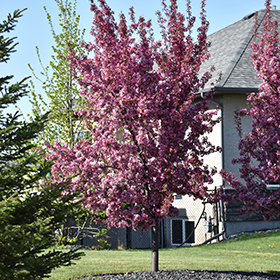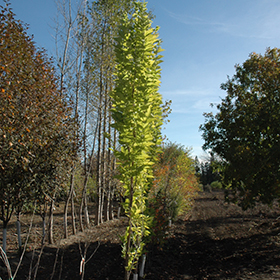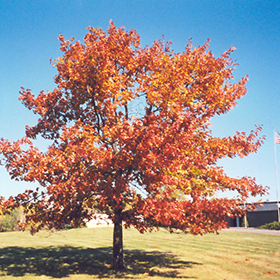Description
Growth & Care
| USDA Plant Hardiness Zone | 2b |
| Growth Rate | Average |
| Recommended Pruning Method | Late Winter Pruning |
| Fruit Tree Pollinator Requirement | Self-pollinated |
Foliage
| Foliage Type | Deciduous |
| Fall Color | Yellow |
| Plant Form | Spreading |
Flowers
| Flower Period | Spring |
| Flower Color | White |
| Flower Fragrance | High |
Additional Categories
| Additional Category | Plum |
| Landscape Application | Accent, Screening, Orchard |
Details
Planting & Growing
American Plum will grow to be about 20 feet tall at maturity, with a spread of 15 feet. It has a low canopy with a typical clearance of 3 feet from the ground, and is suitable for planting under power lines. It grows at a medium rate, and under ideal conditions can be expected to live for approximately 30 years. This is a self-pollinating variety, so it doesn't require a second plant nearby to set fruit.
This tree is typically grown in a designated area of the yard because of its mature size and spread. It should only be grown in full sunlight. It does best in average to evenly moist conditions, but will not tolerate standing water. It is not particular as to soil type or pH. It is somewhat tolerant of urban pollution. This species is native to parts of North America.
Features & Attributes
American Plum is clothed in stunning clusters of fragrant white flowers along the branches in early spring before the leaves. It has green deciduous foliage. The pointy leaves turn an outstanding yellow in the fall. The fruits are showy gold drupes with a ruby-red blush, which are displayed in mid summer. The fruit can be messy if allowed to drop on the lawn or walkways, and may require occasional clean-up. The smooth brown bark adds an interesting dimension to the landscape.
This is a multi-stemmed deciduous tree with a spreading, ground-hugging habit of growth. Its average texture blends into the landscape, but can be balanced by one or two finer or coarser trees or shrubs for an effective composition. This plant will require occasional maintenance and upkeep, and is best pruned in late winter once the threat of extreme cold has passed. It is a good choice for attracting birds to your yard. Gardeners should be aware of the following characteristic(s) that may warrant special consideration:
Messy, Disease
Aside from its primary use as an edible, American Plum is sutiable for the following landscape applications:
Accent, Hedges/Screening, Orchard/Edible Landscaping
Edible Qualities
American Plum is a small tree that is commonly grown for its edible qualities. It produces small gold round fruit (technically 'drupes') with a ruby-red blush and yellow flesh which are usually ready for picking in mid summer. Note that the fruits have hard inedible pits inside which must be removed before eating or processing. The fruits have a tart taste and a fleshy texture.
The fruit are most often used in the following ways:
Preserves
